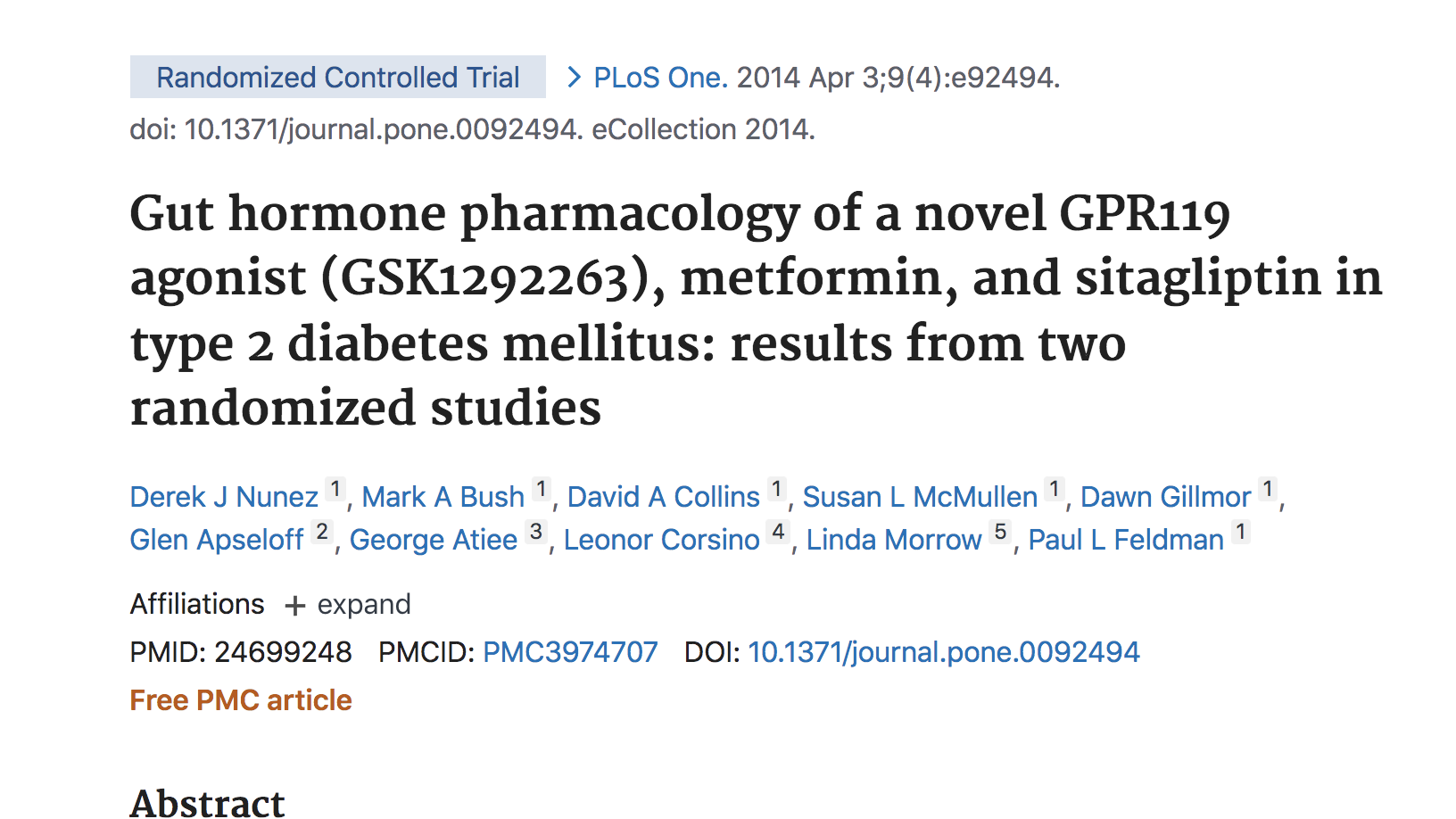About This Article
GPR119 receptor agonists improve glucose metabolism and alter gut hormone profiles in animal models and healthy subjects. We therefore investigated the pharmacology of GSK1292263 (GSK263), a selective GPR119 agonist, in two randomized, placebo-controlled studies that enrolled subjects with type 2 diabetes. Study 1 had drug-naive subjects or subjects who had stopped their diabetic medications, and Study 2 had subjects taking metformin. GSK263 was administered as single (25-800 mg; n = 45) or multiple doses (100-600 mg/day for 14 days; n = 96). Placebo and sitagliptin 100 mg/day were administered as comparators. In Study 1, sitagliptin was co-administered with GSK263 or placebo on Day 14 of dosing. Oral glucose and meal challenges were used to assess the effects on plasma glucose, insulin, C-peptide, glucagon, peptide tyrosine-tyrosine (PYY), glucagon-like peptide-1 (GLP-1) and glucose-dependent insulinotropic peptide (GIP). After 13 days of dosing, GSK263 significantly increased plasma total PYY levels by ∼ five-fold compared with placebo, reaching peak concentrations of ∼ 50 pM after each of the three standardized meals with the 300 mg BID dose. Co-dosing of GSK263 and metformin augmented peak concentrations to ∼ 100 pM at lunchtime. GSK263 had no effect on active or total GLP-1 or GIP, but co-dosing with metformin increased post-prandial total GLP-1, with little effect on active GLP-1. Sitagliptin increased active GLP-1, but caused a profound suppression of total PYY, GLP-1, and GIP when dosed alone or with GSK263. This suppression of peptides was reduced when sitagliptin was co-dosed with metformin. GSK263 had no significant effect on circulating glucose, insulin, C-peptide or glucagon levels. We conclude that GSK263 did not improve glucose control in type 2 diabetics, but it had profound effects on circulating PYY. The gut hormone effects of this GPR119 agonist were modulated when co-dosed with metformin and sitagliptin. Metformin may modulate negative feedback loops controlling the secretion of enteroendocrine peptides.



